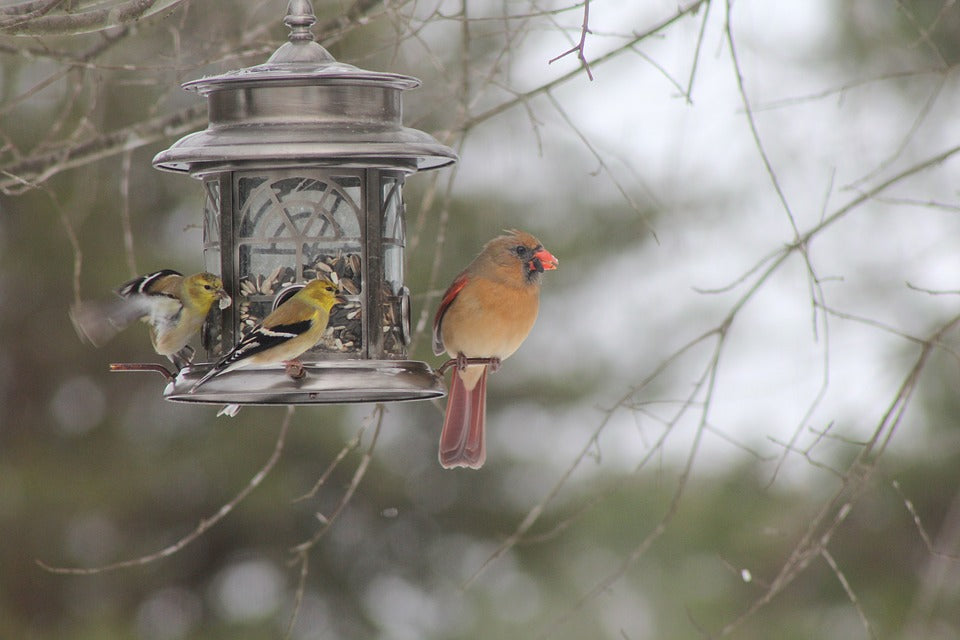Offer
Provide additional details about the offer you're running.
Provide additional details about the offer you're running.
Provide additional details about the offer you're running.

With Christmas behind us and the New Year front and center, many of us have accepted the inevitable fact that winter is here to stay…at least until the spring.
That being said, for most of us, winter is not all that bad. As outdoor recreationists we all enjoy skiing, hiking, hockey and snowshoeing in Canada’s winter wonderland, in addition to watching our favourite winter birds.
When speaking of winter birds, we all are aware that they definitely require a bit more care this time of year, especially with inclement weather and snow storms, making it difficult for them to forage for food and stay warm. In addition to keeping your feeders full and providing your birds with a reliable winter watering hole, we have three more tips to make your winter birding just that much more comfortable and safe for the birds.
We should most definitely be keeping our feeders squeaky clean throughout the year, but with large amounts of accumulated snow fall, we can also help out our ground-feeding birds. Many birds that perch upon our feeders are quite good at knocking a good portion of our seed to the ground. What lie beneath the feeder is our ground-feeders such as cardinals and juncos. What many folks like to do is use a shovel or other flat object to stamp out the area surrounding the base of your feeder. This easily allows small ground-feeding birds access to fallen seed after major snowfalls.
Just the same as our birds are in need of nutrition so true is the same for many other animals, including those with birds on their menu. Neighborhood cats and other wildlife prey upon feeders during the winter months as the cold and snowy conditions often allow them to sneak up rather quietly. Be sure that your feeders are placed close to natural cover for your birds, but not so close that a predator could easily utilize that same cover. Some folks even go so far as to place small cages, fencing or mesh around their feeding stations to prevent predation.

While many of us choose to remove nesting boxes from our yard in the fall, they can actually be quite helpful to overwintering birds. Many species such as chickadees and some woodpeckers will use these sites to roost during the cold months and are often a place of refuge for birds during terrible weather.
High Quality Blend